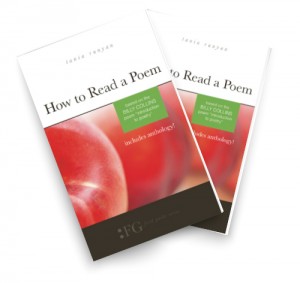In the fifteen years I have taught poetry-writing for a living, the only thing I’ve always done in every class is make students memorize poems. From Introduction to Poetry Writing to the graduate workshop, it’s a non-negotiable requirement. I warn them on the first day.
The poem must be at least 14 lines long, previously published, no song lyrics. They must judge it a great poem worthy of the effort. “Find one you love so much you want it to be part of your bodies, ” I tell them. “A piece of art you want to own.”
I tell them that people used to say “commit, ” as if memorization were a physical act, like a crime, or a leap of faith. “In high school, I once committed The Raven.”
Long before that, Plato and St. Paul used a phrase that gets translated “written on the heart” to refer to memorization.
I tell them they must get the poem down cold, so they will be able to stand up in a crowded bus or bar and recite it with confidence if necessary. I tell them memorization is the best way to get to know a poem: to internalize its rhythms, grasp its diction and syntax, and understand its structure and movement from beginning to end. I tell them committing a poem is a form of self love, like buying yourself a gift, only better. And no one can take it away from you.
When recitation days arrive, they silently write their poems out by hand, word for word, and then one by one, stand and deliver, with a neighbor holding the handwritten script. Usually there is Frost, Bukowski, and Plath. Once a shy kid in a ball cap who had barely ever talked presented the entire “Love Song of J. Alfred Prufrock” to our stunned silence. Another time a goth girl in lace-up boots said all of Robert Service’s “The Highwayman.” Often a sassy chick will boast Maya Angelou’s “Phenomenal Woman” or Lucille Cliffton’s “Hips.” Usually someone drags out a Shel Silverstein favorite from childhood. Last semester, a student from Indonesia recited a classic pantoum in Malay, then in translation.
We were enchanted that morning, as always, when students take the assignment seriously and present their poems well. We were in the presence of embodied poetry—Robert Pinsky’s message when he was poet laureate: the human voice is the proper instrument for the poem. But it’s more than that. It is a gesture of intimacy and vulnerability to share with others what you truly love.
In a world where students sit beside one another in classrooms and text message remote acquaintances, these students must risk enough to stand and physically present something they prize to their peers. The class listens very hard, willing the next line to come smoothly, eager to see and praise the treasure this person loved enough to commit.
Photo by John Morgan, Creative Commons, via Flickr. Post by Julia Spicher Kasdorf, author of Poetry in America
___________
How to Read a Poem: Based on the Billy Collins Poem “Introduction to Poetry”
- Top 10 Dip into Poetry - August 13, 2025
- Poetry Club Tea Date ✨ At the End - August 4, 2025
- Poetry Prompt: Gathering Flowers - June 16, 2025


Kathy Robbins says
I am not a poet. I don’t even understand a lot of poetry. But I do memorize scripture from the Holy Bible. It really takes a commitment to do that. It does become a part of me.
Great post! Maybe I’ll memorize a poem one day.
Kathy
L. L. Barkat says
Kathy, so nice to see you here. A good deal of the bible is written in poetry form, so… who knows… maybe you are more of a poet (or poetry-lover) than you ever knew. 🙂
Cindee Snider Re says
Love, love, love! And sharing this with my kids this morning. Poetry has been part of our day, part of our daily reading and writing since we began home schooling 12 years ago, but this…this is gold!
John says
In 8th grade I committed The Charge of the Light Brigade, and then one autumn in college I committed The War-Song of Dinas Vawr and The Passing of Arthur…thanks for the spur to commit again…
Sam Van Eman says
Julia, I spent so much time around glue in college and paint stripper in the basement that recall abandons me. I know that what I’ve committed remains, but it’s as if the trail leading to it has become overgrown. Still, this is a good reminder and it’s probably worth trying, even if I end up having to do it again.
Maureen Doallas says
Lovely post, Julia.
Marvelous stand-out line: “It is a gesture of intimacy and vulnerability to share with others what you truly love.”
Megan Willome says
This explains why Julia is such a great teacher!
Julia Kasdorf says
Thanks everyone! Yes, with age I find it gets harder to commit. I return to the poems I learned as a student–and I find my own students inspiring.
Lucky home-schooled kids with their daily does of poetry power, Cindee!
Maureen Doallas says
On a related note, Robert Pinsky at Slate writes “In Praise of Memorizing Poetry – Badly”:
http://www.slate.com/articles/arts/poem/2011/11/william_butler_yeats_on_being_asked_for_a_war_poem_.html
Patricia says
I’ve never heard anyone read poetry like you do, Julia. I’m a singer, an experienced vocalist and I don’t get moved easily by people who *read*… but
that first night, when you began to read from your book, it was music to me. I loved the sound of the turning pages and the way you held your book. But, it was hearing your voice … I squirmed inside just a bit… and now I know why (it was a gesture of intimacy and vulnerablility… you sharing with us what you truly love.) The sound of your breathing in captured me in an emotional anticipation… because I knew that the sound of what was going to come out of you was going to be even better… like a song. And, of course, that explains Pinsky’s truth that “the human voice is the proper instrument for the poem.” “Instrument” could not be a more appropriate word for me. You play it well, Julia. I hope I can hear you again someday. Blessings to you for teaching me such beauty.
Julia Kasdorf says
Patricia, such generous words you offer. Thank you.
Geraldine Crowell says
I learned “Abou Ben Adhem” by heart in grade school in Canada almost 75 years ago and can still recite it verbatim today. I am 85. Also learned Daffodills by W. Wordsworth and believe me they are certainly engraved on not just the tablets of my mind but on my whole body heart and soul. They have become my mantra and have sustained me through many challenges in my life. They are the still small voice I hear within and something the world needs in this day and age. I stayed up many nights trying to remember them and was rather annoyed at the Nuns who insisted I do so….but today because of these lines “ write me as one that loves his fellowman.” I treat everyone according to the golden rule.
L.L. Barkat says
I love that, Geraldine—that you can still recite them and that they are with you body heart and soul. (And this? Extra love: “They are the still small voice I hear within and something the world needs in this day and age.”)